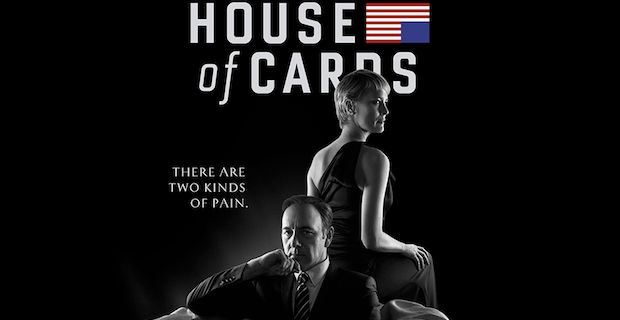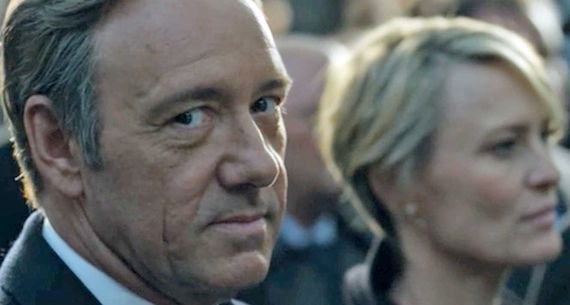It seems that House of Cards' main character Frank Underwood - played by Kevin Spacey - isn't the only person willing to scheme to get his way politically. Apparently, so are the producers of the hit Netflix series.
Many movies and TV shows filming throughout the country rely on tax benefits in the form of tax credits, exemptions, cash grants and fee-free locations to help fund their productions. These incentives are offered on a state-by-state basis, and oftentimes they mean the difference between a production deciding to film in one location or another.
This is the problem currently befalling House of Cards season 3, which was scheduled to begin production this spring but has now been pushed back to mid-June pending the outcome of two separate bills in the Maryland Legislature. Media Rights Capital, which produces the series, received more than $11 million in Maryland tax credits for season 1 and are on track to receive $15 million for season 2, an amount they were also hoping to get for season 3. That tax credit is currently impossible, however, unless Maryland passes either of two bills required to raise the cap again from $7.5 million, where it was before House of Cards arrived, to $11 million or $18.5 million.
In a letter sent a few weeks ago, MRC pleaded with several politicians to make the right choice, otherwise production would be forced to move to another state:
"We wanted you to be aware that while we had planned to begin filming in early spring, we have decided to push back the start date for filming until June to ensure there has been a positive outcome of the legislation. In the event sufficient incentives do not become available, we will have to break down our stage, sets and offices and set up in another state."
On the one hand, the Washington Post says economic development officials reported that House of Cards created nearly 6,000 jobs and poured more than $250 million into the state's economy since its arrival. Still, many argue those jobs weren't created for in-state cast and crew members, but more likely the result of out-of-state talent moving in to work on the show. Even if it were true, in-state jobs are only short-term and would no longer be profitable once the show ceases production.
On the other hand, the state delegates argue, how much more will they have to give? Del. Eric G. Luedtke (D-Montgomery), who until now has supported film tax credits, asked economic development officials at a hearing on the issue last Friday, “This just keeps getting bigger and bigger. And my question is: When does it stop?” Del. C. William Frick (D-Montgomery) concurred, saying, “It sounds like you are suggesting that they wouldn’t film Season 3 here after we’ve given them $31 million already. Is it possible that they would just leave after we gave them $31 million?”
If the show, in fact, decides to leave Maryland for greener money-filled pastures, it's said that Virginia lawmakers are currently looking to increase their tax credit cap to $12.5 million. If not Virginia, then North Carolina would be another good choice for replicating the look and feel of the Capitol, seeing as Washington, D.C. currently offers no tax credits. Summing up how Maryland feels about the issue, Del. Mark N. Fisher (R-Calvert) said it best, “We’re almost being held for ransom.” Indeed.
___________________________________________________
More: 'House of Cards' Season 2 Finale Review
___________________________________________________
What do you think about all the hubbub? Should Maryland go ahead and give them more money? Or should House of Cards just move everything to another state?
_________________________________________________
House of Cards seasons 1 and 2 are available in their entirety on Netflix.
Source: Deadline


